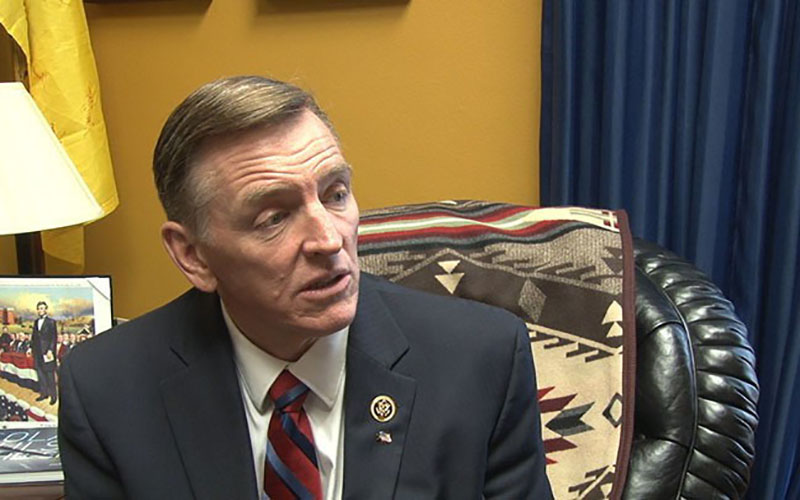WASHINGTON – Two Arizona lawmakers were among the 30 Republicans who crossed the aisle and joined all Democrats to send the $868 billion farm bill to defeat in the House Friday.
Republican Reps. Paul Gosar of Prescott and Andy Biggs of Gilbert voted against the bill along with other members of the conservative Freedom Caucus. The caucus had hoped to use the farm bill as leverage to get a vote on an immigration reform bill that is more stringent than a number of bills that a bipartisan group of House members is pushing.
Democrats had opposed the farm bill because it contained sharp cuts to the food stamp program. All 183 Democrats who voted Friday voted to reject the bill, with the 30 Republican votes giving them enough to sink the bill for now on a 198-213 vote.
Biggs did not respond to requests for comment Friday, but Gosar defended the vote. He said there is still time to reauthorize the farm bill and that Congress should first deal with the “discharge petition” some members are pushing that would force votes on the group of immigration bills.
“My objection today was not with the farm bill, however, it was with the immediate attempt by all the Democrats in Congress to give amnesty to 10 million illegal aliens by way of a discharge petition,” Gosar said in a statement emailed from his office. “We still have four more months to reauthorize the farm bill, but we only have a number of days to find a solution to secure our border.”

Rep. Paul Gosar, R-Prescott, said Congress has months to pass a new farm bill, but needs to deal with border security now. (Photo by Charles McConnell/Cronkite News)
The chairman of the House Agriculture Committee called Friday’s vote “a setback,” but promised in a statement to keep working to pass a farm bill.
“We may be down but we are not out,” said Rep. Mike Conaway, R-Texas. “Our nation’s farmers and ranchers and rural America deserve nothing less.”
Despite Conaway’s optimism, some farm groups were upset to see a bill critical to their livelihoods caught up in a fight over immigration.
“Today, instead of updating and improving our farm bill, Washington politicians used it to turn farm and ranch families into bargaining chips in global trade discussions and this country’s immigration reform failures,” said Arizona Farm Bureau President Stefanie Smallhouse, in an emailed statement. “We need Congress to stop playing politics with the security of our agricultural industry and our nation.”
The 644-page bill covers everything from crop insurance and farm loan programs to increased broadband standards for rural areas and relaxed environmental regulations. While it reauthorizes spending for five years, the Congressional Budget Office estimates that spending under the bill would translate into $868 billion over the next 10 years.
The bill also included a proposal to raise work and education requirements for some able-bodied beneficiaries of the Supplemental Nutrition Assistance Program, better known as food stanps.
One in eight Arizona residents, or about 919,000 people, were getting SNAP benefits in fiscal 2017, according to the Center on Budget and Policy Priorities. It said the percentage of recipients is similar on the national level, where 42 million received food stamps last year.
The bill would also cut free school lunches “for almost 40,000 children in Arizona,” Rep. Raul Grijalva, D-Tucson, said in a tweet Friday that called it “unacceptable to increase food insecurity in our communities.”
Rep. Kyrsten Sinema, D-Phoenix, cited a range of problems with the bill, but called on both sides to work together.
“Arizonans deserve a strong farm bill that does right by family farmers, puts food on the table for Arizona families and has the support of both parties,” Sinema said in an email from her office. “This bill played politics with family farmers and our economy. It’s time for both parties to roll up their sleeves, get to work, and pass a commonsense farm bill that works for Arizona.”
Kevin Rogers, the executive vice president of the Arizona Cotton Growers Association, said he is disappointed the bill failed Friday but hopeful for the future.
“We understand politics are at play,” said Rogers, a fifth-generation Arizona farmer. “It’s a stop sign, but the game isn’t over. I am confident that they (lawmakers) will get back together and work their differences out.”
– Cronkite News reporters Sarabeth Henne, Danielle Coble and Pat Poblete contributed to this report.
